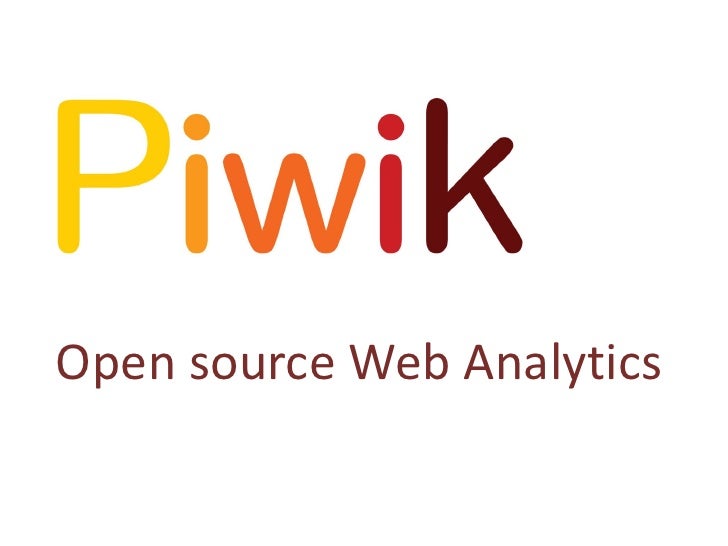INCENTIVE MECHANISM FOR QUALITY INSPECTION: A LINEAR PROGRAMMING APPROACH
DOI:
https://doi.org/10.24843/MATRIK:JMBK.2025.v19.i02.p05Keywords:
Incentive mechanism, outsourcing, quality checking, Mechanism design theory, Linear programming.Abstract
This study develops an incentive mechanism model for outsourced personnel in product quality inspection, based on a principal-agent relationship. The core challenge lies in misaligned incentives, where agents often prioritize output volume over quality. By integrating Mechanism Design Theory (MDT) and Linear Programming (LP), our model aligns the principal's objective of minimizing defective products with the agent's utility maximization, subject to Incentive Compatibility and Individual Rationality constraints. Our analysis reveals that the optimal incentive structure combines a basic wage with a performance-based bonus. The optimal effort level of outsourced personnel increases with both rising losses due to defective products and enhanced detection effort effectiveness. The model also shows that optimal inspection allocation should be assigned to personnel with higher capabilities, especially for high-risk products. This research provides a theoretical contribution by integrating MDT and LP for incentive design and offers practical implications for improving product quality through a measurable incentive framework.
Downloads
References
Abdullah, R., Chauhan, R., Kurniawan, R., Rajpurohit, N., & Hubur, A. (2021). The entire system of wages and rewards to increase productivity in factory. Linguistics and Culture Review, 394–403. https://doi.org/10.21744/lingcure.v5nS1.1688
Akinsola, V. O., & Oluyo, T. O. (2019). Mathematical analysis with numerical solutions of the mathematical model for the complications and control of diabetes mellitus. Journal of Statistics and Management Systems, 2(5), 845–869. https://doi.org/10.1080/09720510.2019.1635444
Akkermans, H., Van Oppen, W., Wynstra, F., & Voss, C. (2019). Contracting outsourced services with collaborative key performance indicators. Journal of Operations Management, 65(1), 22–47. https://doi.org/10.1002/jom.222
Asif, M., Searcy, C., & Castka, P. (2022). Exploring the role of industry 4.0 in enhancing supplier audit authenticity, efficacy, and cost effectiveness. Journal of Cleaner Production, 331(129939). https://doi.org/10.1016/j.jclepro.2021.129939
Ballen, K. Y. (2023). Strategies for Minimizing Defects in Outsourced Products. Walden University.
Basu, P., Liu, Q., & Stallaert, J. (2019). Supply chain management using put option contracts with information asymmetry. International Journal of Production Research, 57(6), 1772–1796. https://doi.org/10.1080/00207543.2018.1508408
Bernhold, T., & Wiesweg, N. (2021). Principal-agent theory: Perspectives and practices for effective workplace solutions. In A handbook of management theories and models for office environments and services (pp. 117–128). https://doi.org/10.1007/978-3-030-53483-8
Bhattacharya, A., & Singh, P. J. (2019). Antecedents of agency problems in service outsourcing. International Journal of Production Research, 57(13), 4194–4210. https://doi.org/10.1080/00207543.2018.1506179
Börgers, T. (2015). An introduction to the theory of mechanism design. Oxford university press. https://doi.org/10.1093/acprof:oso/9780198731535.001.0001
Chen, H., Qi, Z., & Shi, Z. (2021). Remote sensing image change detection with transformers. IEEE Transactions on Geoscience and Remote Sensing, 60, 1–14. https://doi.org/10.1109/TGRS.2021.3053643
Coplan, K. S. (2017). The missing element of environmental cost-benefit analysis: Compensation for the loss of regulatory benefits. Georgetown Environmental Law Review, 30(281).
Daniel, F., Kucherbaev, P., Cappiello, C., Benatallah, B., & Allahbakhsh, M. (2018). Quality control in crowdsourcing: A survey of quality attributes, assessment techniques, and assurance actions. ACM Computing Surveys (CSUR), 51(1), 1–40. https://doi.org/10.1145/3145928
Dong, Y., Xu, K., Xu, Y., & Wan, X. (2016). Quality management in multi‐level supply chains with outsourced manufacturing. Production and Operations Management, 25(2), 290–305. https://doi.org/10.1111/poms.12391
Dunn, T. L., Inzlicht, M., & Risko, E. F. (2019). Anticipating cognitive effort: roles of perceived error-likelihood and time demand. Psychological Research, 83, 1033–1056. https://doi.org/10.1007/s00426-018-1011-4
Friis, I., Hansen, A., & Vámosi, T. (2015). On the effectiveness of incentive pay: Exploring complementarities and substitution between management control system elements in a manufacturing firm. European Accounting Review, 24(2), 241–276. https://doi.org/10.1080/09638180.2014.976055
Gunasekaran, A., Irani, Z., Choy, K. L., Filippi, L., & Papadopoulos, T. (2015). Performance measures and metrics in outsourcing decisions: A review for research and applications. International Journal of Production Economics, 161, 153–166. https://doi.org/10.1016/j.ijpe.2014.11.024
He, Y., Zhou, Z., Wu, B., Xiao, K., Wang, C., & Cheng, X. (2024). Game-Theoretic Incentive Mechanism for Collaborative Quality Control in Blockchain-Enhanced Carbon Emissions Verification. IEEE Transactions on Network Science and Engineering. https://doi.org/10.1109/TNSE.2024.3376689
Ihle, C., Trautwein, D., Schubotz, M., Meuschke, N., & Gipp, B. (2023). Incentive mechanisms in peer-to-peer networks—a systematic literature review. ACM Computing Surveys, 55(14s), 1–69. https://doi.org/10.1145/3560833
Indonesia Business Process Outsourcing (BPO) Market Growth & Trends. (2023). Grand View Research.
Jiang, N., & Ma, Y. (2025). Research on Incentive Mechanisms in the Data Market Based on a Multitask Principal Agent Model. Sustainability (Switzerland), 17(4), 1623. https://doi.org/10.3390/su17041623
Kang, M., Ki-Hyun, U., Shou, Y., & Roh, J. J. (2022). Matching goal-based incentive systems with cross-functional integration to improve operation and innovation performance. International Journal of Operations & Production Management, 42(2), 230–254. https://doi.org/10.1108/IJOPM-03-2021-0177
Kim, H., Lin, Y., & Tseng, T. L. B. (2018). A review on quality control in additive manufacturing. Rapid Prototyping Journal, 24(3), 645–669. https://doi.org/10.1108/RPJ-09-2017-0179
Lee, H. H., & Li, C. (2018). Supplier quality management: Investment, inspection, and incentives. Production and Operations Management, 27(2), 304–322. https://doi.org/10.1111/poms.12489
Liang, Y., Liang, X., & Wei, H. (2023). Sustainable Quality-Incentive Contract Design of Public Technology Innovation Procurement under Asymmetry Information. Sustainability. Sustainability (Switzerland), 15(11), 8773. https://doi.org/10.3390/su15118773
Lucky, B. O., & Takim, S. (2015). Manufacturing defects in the automobile industry, a case study of the remote causes and effects of Toyotas transmission malfunctions in cars. International Journal of Engineering and Applied Sciences, 2(8), 257854.
Maharaj, P. (2019). Examining the Rights of Consumers who May Have Purchased Defective Vehicles. University of KwaZulu-Natal.
Mohammadi, A., & Hashemi Golpayegani, S. A. (2021). A financial incentive mechanism for truthful reporting assurance in online crowdsourcing platforms. Journal of Theoretical and Applied Electronic Commerce Research, 16(6), 2014–2030. https://doi.org/10.3390/jtaer16060137
Monghasemi, S., Nikoo, M. R., Fasaee, M. A. K., & Adamowski, J. (2015). A novel multi criteria decision making model for optimizing time–cost–quality trade-off problems in construction projects. Expert Systems with Applications, 42(6), 3089–3104. https://doi.org/10.1016/j.eswa.2014.11.006
Nas, T. F. (2016). Cost-benefit analysis: Theory and application. Lexington Books. https://doi.org/10.4324/9781315424437
Nasiri, H., Moshiri, B., & Ardestani, S. F. F. (2023). Implementing Mechanism Design Framework on Recruitment with a Wage Function based on Value Engineering. IEEE Access, 1–1. https://doi.org/10.1109/ACCESS.2023.3279272
Nyameboame, J., & Haddud, A. (2017). Exploring the impact of outsourcing on organizational performance. Journal of Global Operations and Strategic Sourcing, 10(3), 362–387. https://doi.org/10.1108/JGOSS-01-2017-0001
Peng, D., Wu, F., & Chen, G. (2017). Data quality guided incentive mechanism design for crowdsensing. IEEE Transactions on Mobile Computing, 17(2), 307–319. https://doi.org/10.1109/TMC.2017.2713013
Porter, M. E., & Heppelmann, J. E. (2015). How smart, connected products are transforming companies. Harvard Business Review, 93(10), 96–114.
Realyvásquez-Vargas, A., Arredondo-Soto, K. C., Carrillo-Gutiérrez, T., & Ravelo, G. (2018). Applying the Plan-Do-Check-Act (PDCA) cycle to reduce the defects in the manufacturing industry. A case study. Applied Sciences, 8(11), 2181. https://doi.org/10.3390/app8112181
Sadiq, A. S., & Ahmed, S. (2020). Understanding of individual rationality and institutional constraints: the case of deficiency of doctors in rural Bangladesh. Journal of Global Health Reports, 4, e2020056. https://doi.org/10.29392/joghr.4.e2020056
Sampson, S. E., & dos Santos, R. P. (2023). Reengineering professional services through automation, remote outsourcing, and task delegation. Journal of Operations Management, 69(6), 911–940. https://doi.org/10.1002/jom.2229
Shipley, R. J., Miller, B. A., & Parrington, R. J. (2022). Introduction to failure analysis and prevention. Journal of Failure Analysis and Prevention, 22(1), 9–41. https://doi.org/10.1007/s11668-021-01324-2
Tan, R., Wu, Y., Su, P., Liao, R., & Zhang, J. (2023). Optimal dynamic incentive mechanism design for construction and demolition waste recycling with Bayesian learning. Journal of Cleaner Production, 412, 137371. https://doi.org/10.1016/j.jclepro.2023.137371
Uluskan, M., Joines, J. A., & Godfrey, A. B. (2016). Comprehensive insight into supplier quality and the impact of quality strategies of suppliers on outsourcing decisions. Supply Chain Management: An International Journal, 21(1), 92–102. https://doi.org/10.1108/SCM-04-2015-0140
Vardhan, R. G., Gowda, R. V. M., & Jagadish, J. (2024). Study on the Roles of Supply Chain Management in Corporate Outsourcing. Indian Scientific Journal of Research in Engineering and Management, 11(12), 1–7. https://doi.org/10.55041/isjrem.2024.v11i12.1037
Więckowski, J., & Sałabun, W. (2024). A new sensitivity analysis method for decision-making with multiple parameters modification. Information Sciences, 678(120902). https://doi.org/10.1016/j.ins.2024.120902
Zhang, M., Zhang, J., Sun, Y., & Cheng, T. C. E. (2022). How to outsource production considering quality management: Turnkey or buy-sell? Omega, 113, 102707. https://doi.org/10.1016/j.omega.2022.102707
Zhang, Y. (2024). Incentivizing Effort and Honesty for High-quality Information [University of Michigan]. https://dx.doi.org/10.7302/24117
Zhao, Y., Xu, X., & Wang, M. (2019). Predicting overall customer satisfaction: Big data evidence from hotel online textual reviews. International Journal of Hospitality Management, 76, 111–121. https://doi.org/10.1016/j.ijhm.2018.04.008
Zhou, Z., Ren, J., Liu, X., & Pardalos, P. M. (2024). Collaborating product development and maintenance service: Quality incentive with inspection and warranty strategies. International Journal of Production Research, 62(20), 7486–7503. https://doi.org/10.1080/00207543.2022.2110019
Zhu, J., Chen, J., Jin, W., & Li, Q. (2025). Developing incentive mechanisms for long-term and short-term technological innovation in major engineering projects using principal-agent theory. Engineering, Construction and Architectural Management, 32(3), 1947–1969. https://doi.org/10.1108/ECAM-08-2023-0788
Downloads
Published
Issue
Section
License
 This work is licensed under a Creative Commons Attribution-ShareAlike 4.0 International License.
This work is licensed under a Creative Commons Attribution-ShareAlike 4.0 International License.













